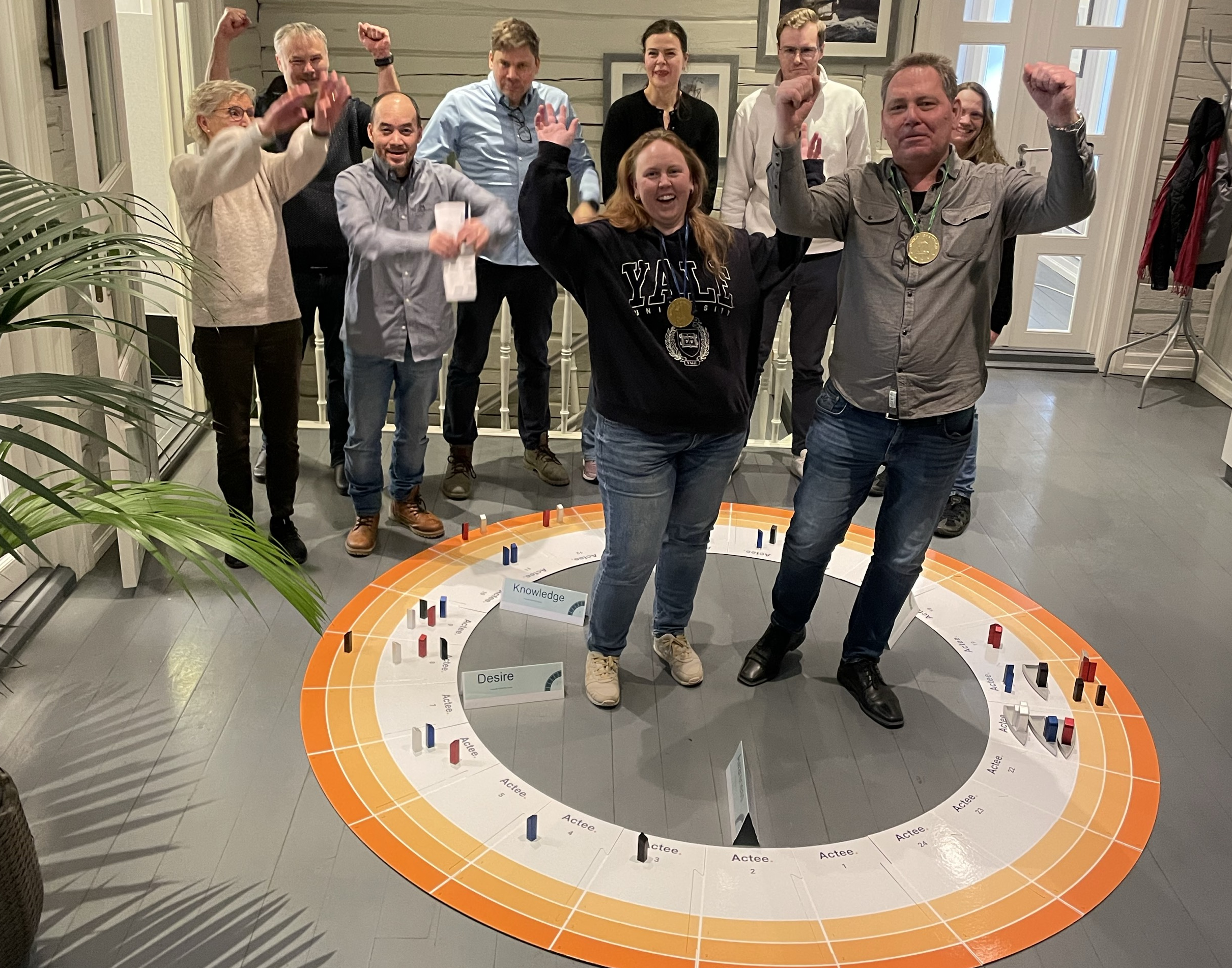
The Cycle gameboard gives you, as a manager, the chance to practice making real-life decisions and handling the challenges you face in your organization — whether they involve change, strategy, development, or other key projects.
Through a mix of computer simulation and a round floorboard game, you are immersed in practical theory and everyday leadership choices, gaining knowledge and tools you can use to drive initiatives forward and keep your team engaged.
“The Cycle games are built on case stories that connect directly to your reality. You can simulate a process on the computer and prepare for the real work in your organization. We also create case stories tailored to your specific organizational situation,” says Leif Sørensen, CEO of Actee.
The round floorboard is a visual symbol of a process in motion. Inspired by Rick Maurer’s Cycle of Change, it reflects that progress is rarely a closed loop, but an ongoing journey of development and adjustment.
Get Your Crew Onboard
On the floorboard, your boat represents your project’s progress. Every choice you make moves it forward — or holds it back. Along the way, your goal is to get your crew on board, representing your colleagues, and inspire them to work alongside you toward success.
“An important part of the Cycle game is the discussions around the choices you make and the results you get. Does it make sense to you? Were you surprised by the outcome? Can you relate to it? Did other groups or players make the same choices?” says Leif Sørensen.
The Cycle game provides a shared language for processes across departments, whether in change management, strategy, innovation, or continuous improvement. It creates ownership, strengthens focus when challenges arise, and serves as a lasting tool that remains relevant long after a project has ended.
(Changesetter or ActeeChange is now called the cycle gameboard)
